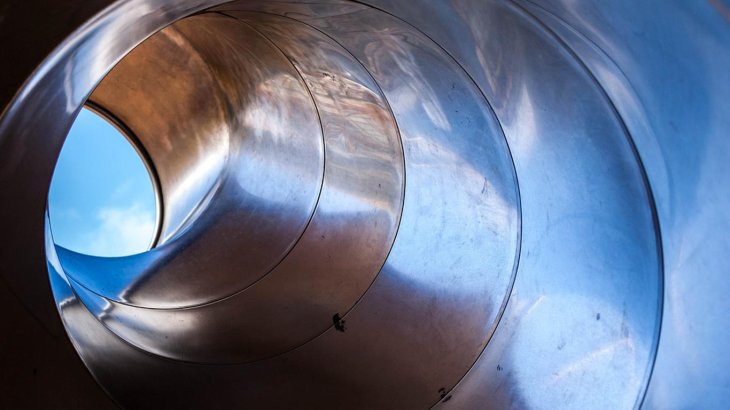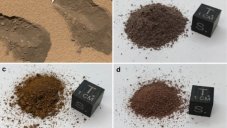New Electricity Source From Water Vapor, We May No Longer Depend On Fossil Fuels
Dhir Acharya - Jun 15, 2020

In a new study, researchers found that electricity can be produced when there's humidity between two metal surfaces. It can even charge a battery.
As the sources of fossil fuels are reducing and they have negative effects on the environment, the world has been spent decades searching for renewable, sustainable alternatives. So far, we have come up with solar energy, wind energy, geothermal, hydroelectric, as well as biomass, which have great potential to tackle climate change. In a new study by Tel Aviv University, researchers discovered that water vapor in the atmosphere could become a new source of renewable energy in the future.

Led by Professor Colin Price, Professor Hadas Saaroni as well as doctoral student Judi Lax, the study is based on the discovery that electricity is created when metal surfaces interact with water molecules. Professor Price explains:
“We sought to capitalize on a naturally occurring phenomenon: electricity from water. Electricity in thunderstorms is generated only by water in its different phases—water vapor, water droplets, and ice. Twenty minutes of cloud development is how we get from water droplets to huge electric discharges—lightning—some half a mile in length.”
The researchers tried to generate a low-voltage battery that uses only humidity in the air, which builds on findings from earlier discoveries. For instance, in the 19th century, physicist Michael Faraday found that metal surfaces could be charged with water droplets because of the friction between them. Meanwhile, it was shown in a recent study that certain metals build up an electric charge when they’re exposed to humidity.

They carried out a lab experiment, exposing two different metals to high relative humidity with one of them grounded, to figure out the voltage between them. They found that when the air was dry, there wasn’t any voltage between the metals. But when the relative humidity increased to over 60%, there was a voltage between the metal surfaces. The voltage disappeared when the humidity reduced to lower than 60%. The same result was observed when they conducted the experiment outdoors, in natural conditions. Price says:
“Water is a very special molecule. During molecular collisions, it can transfer an electrical charge from one molecule to the other. Through friction, it can build up a kind of static electricity. We tried to reproduce electricity in the lab and found that different isolated metal surfaces will build up different amounts of charge from water vapor in the atmosphere, but only if the air relative humidity is above 60%. This occurs nearly every day in the summer in Israel and every day in most tropical countries.”
Professor Price said that the study challenges previous ideas of humidity as well as its potential in producing energy. It’s long been known that dry air produces static electrical while water is thought to be a good electricity conductor instead of something capable of building up charge on a surface.
“However, it seems that things are different once the relative humidity exceeds a certain threshold.”
Nevertheless, the research team showed that humid air may act as a source of charging surfaces to around one-volt devices. For now, it may be practical for 1.5V AA batteries.
“The results may be particularly important as a renewable source of energy in developing countries, where many communities still do not have access to electricity, but the humidity is constantly about 60%.”
>>> Italian Restaurants Switch From Paper Menus To QR Scan Codes
Featured Stories

Features - Jul 01, 2025
What Are The Fastest Passenger Vehicles Ever Created?

Features - Jun 25, 2025
Japan Hydrogen Breakthrough: Scientists Crack the Clean Energy Code with...

ICT News - Jun 25, 2025
AI Intimidation Tactics: CEOs Turn Flawed Technology Into Employee Fear Machine

Review - Jun 25, 2025
Windows 11 Problems: Is Microsoft's "Best" OS Actually Getting Worse?

Features - Jun 22, 2025
Telegram Founder Pavel Durov Plans to Split $14 Billion Fortune Among 106 Children

ICT News - Jun 22, 2025
Neuralink Telepathy Chip Enables Quadriplegic Rob Greiner to Control Games with...

Features - Jun 21, 2025
This Over $100 Bottle Has Nothing But Fresh Air Inside

Features - Jun 18, 2025
Best Mobile VPN Apps for Gaming 2025: Complete Guide

Features - Jun 18, 2025
A Math Formula Tells Us How Long Everything Will Live

Features - Jun 16, 2025
Comments
Sort by Newest | Popular